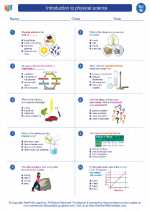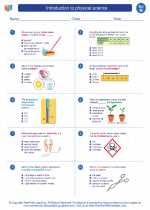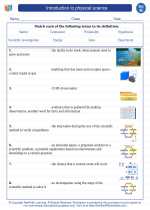Neutrons
Neutrons are subatomic particles that are found in the nucleus of an atom. They are electrically neutral, meaning they do not have a positive or negative charge. Neutrons were discovered in 1932 by James Chadwick, and they play a crucial role in the structure and stability of an atom.
Structure of a Neutron
A neutron is composed of three quarks - one "up" quark and two "down" quarks. Quarks are fundamental particles that are held together by the strong nuclear force. The combination of these quarks gives the neutron its neutral charge.
Role of Neutrons in an Atom
Neutrons play a key role in determining the stability and behavior of an atom. They are responsible for holding the protons together in the nucleus through the strong nuclear force. Without neutrons, the positively charged protons would repel each other, causing the nucleus to break apart.
Isotopes and Neutrons
The number of neutrons in an atom can vary, leading to different isotopes of an element. Isotopes are atoms of the same element that have the same number of protons but different numbers of neutrons. The variation in the number of neutrons can affect the stability and radioactive properties of an isotope.
Studying Neutrons
When studying neutrons, it is important to understand their role in the structure of an atom and how they contribute to the stability of different isotopes. It is also crucial to grasp the concept of quarks and the strong nuclear force that holds the neutrons and protons together in the nucleus.
Key Points to Remember
- Neutrons are electrically neutral subatomic particles found in the nucleus of an atom.
- They are composed of three quarks - one "up" quark and two "down" quarks.
- Neutrons play a crucial role in holding the protons together in the nucleus, contributing to the stability of an atom.
- The variation in the number of neutrons can lead to different isotopes of an element, affecting their stability and properties.
Understanding the properties and role of neutrons is fundamental to comprehending the behavior of atoms and their isotopes.





